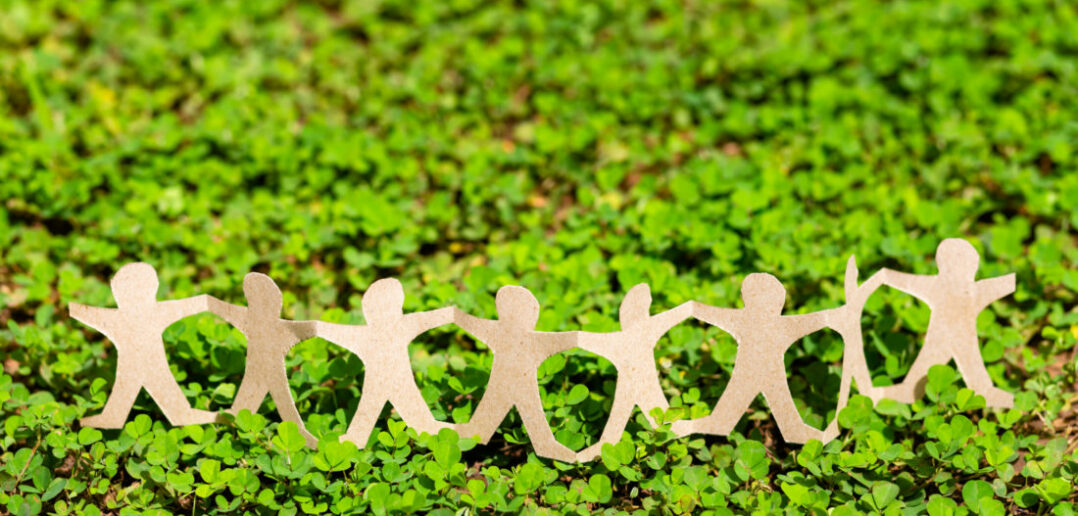CSR. This acronym resonated particularly strongly in these times of crisis, when makind is affected in what is most precious for him, his human frailty.
Looking back over the last few decades, CSR (Corporate Social Responsibility) challenges have emphasised first of all a responsible approach to property, in a spirit of economic research, focused on energy.
Aware of climate issues, players in the property industry service sector have risen to the challenge
of defining a framework for responsible business. Environmental labelling and certifications have
helped raise awareness of the proper use of our buildings for each company, thereby forming a
responsible community of tenants.
From a community approach to an individual approach
Over the past few years, the arrival of new generations combined with the technological revolution has led to a shift from this community-focused sustainable approach to an individually-focused sustainable approach.
We are gradually faced with a real change in companies’ search for growth drivers, as they are now aware of the need to preserve the common good, starting with employees themselves… With the emergence of new working methods, changes in use and the significant digitisation of services, well-being at work is now a real priority for employees.
This has resulted in the emergence of certifications geared towards QLW (Quality of Life at Work), and new services developed by start-ups which are capable of exciting employees, with the aim of attracting and retaining talent. However, while buildings have become living spaces, experiences and even games, they have not inspired us to focus on our deep search for meaning in this ultraconnected world.
The dreadful health crisis we are going through forces us to question ourselves. As we are effectively faced with a great paradox: growing connectivity between people, and at the same time an impoverishment of actual relationships which are too fast, too direct and too self-centred, even as the world around us is experiencing societal, structural, environmental and now health-related upheavals.
The need for genuine individual responsibility, with all our strengths and weaknesses, is therefore being felt; within companies, it will necessarily involve a change of focus both in organisation and in management, so that this, too becomes an authentic, unified management.
Companies’ “raison d’être” will also present an excellent opportunity for any leader who wants to instil a strong identity, a unique image for their teams, products or services.
As such, being part of an aligned management approach, consistent with their values, will encourage each employee in the company to define, in addition to their objectives and economic performance, their own “raison d’être”, the meaning that they wish to give to their life in the company. This is the domino effect.
How could a company then fail to give birth to mission-based micro-initiatives, going beyond the
“gaming zones” often set up in large office complexes?
This premise will create genuine, strong social value that is complementary to or even indispensable for the creation of economic value.
This newly-created social value will be free from any hierarchy within the company; outside formal structures, it will be informed by each person’s story and will contribute to a genuine collective, dynamic intelligence, where each employee becomes a co-author of the transformation of their company, « on-site ».
Feeling good about yourself to be good with others and become a player in the transformation of the world
From the moment the movement is to be launched within the company, and each employee begins to show their intrinsic value in building the company of tomorrow, it will become a real external driver, so that this social value can be exported “off-site”.
Corporate Social Responsibility, which has become intra-corporate social responsibility, will thus become inter-corporate social responsibility, resonating with other buildings, other neighbourhoods, other cities, etc.
We all want an inclusive world “which has something more”. Putting human aspects within this dynamic means not only collectively sharing the economic performance of our companies, but also making sure that everyone becomes a link in the co-construction of the city, outward-looking, where difference is freely expressed.
Like the initiative behind a manifesto signed by around a hundred major French groups committing to the professional integration of people with disabilities, visible or invisible, our industry is heading towards a future where human strength will be able to meet other challenges that await us and where diversity of talent will be a real asset.
Reconciling economic and social value is a strong element of MIPIM 2020, reinforced by the events we are currently experiencing, which will undoubtedly mark a before and an after.
In the near future let us give ourselves the means to develop every talent within our companies, so that they become full-fledged players in the transformation of the city and our worldview.
From economic value to green values, social value will indeed be the cornerstone of the future of
our property industry!
Top image: patpitchaya / Getty Images



